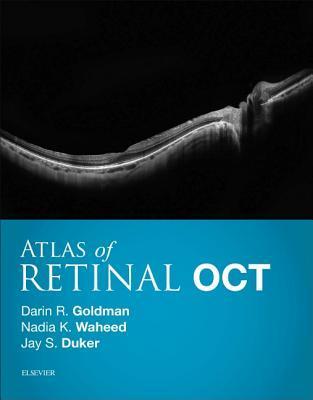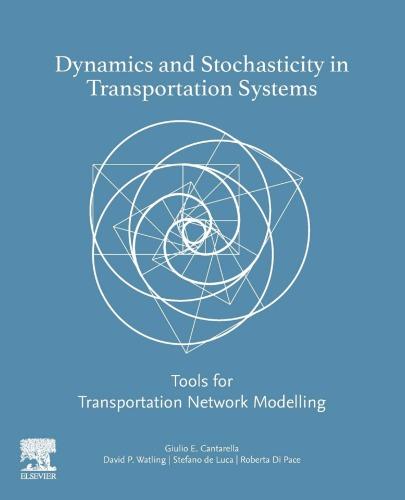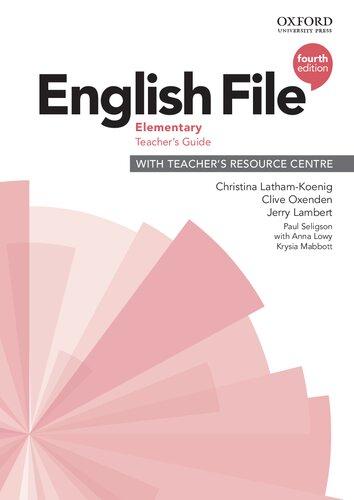Random
documents with unrelated content Scribd suggests to you:
and without effective means of national defence. Quite naturally, therefore, China offers a temptation to any strong country desiring exclusive trade advantages for itself. Her nearest neighbor, Japan, would speedily be able to secure entire control of the Chinese Republic and make China a vassal state were it not for the deterring influence of the other great powers of the world.
In 1899, after the close of the Spanish War, the government of the United States addressed a note to all the great powers urging that they agree to seek no further special trade advantages in China, that the integrity of Chinese territory be preserved, and that the principle of “equal and impartial trade” should be adopted. To this suggestion all the powers agreed. This policy thus accepted has become known as the policy of the “open door”, and until the outbreak of the World War it was substantially followed, except that the various powers retained the commercial advantages that they had already acquired.
The “open door.”
During this war, however, Japan attacked and captured Kiao-Chao, a port which had been leased by China to Germany for a long term of years, and this territory the Japanese continued to hold after the war was over. Not until the Washington conference of 1922 did Japan agree to give it up. In 1918, moreover, the government of Japan made a list of twenty-one demands upon China for special privileges, and although some of these demands were later modified or withdrawn entirely, several important privileges were wrung from the Chinese. In connection with these negotiations the United States government gave assurance in the so-called Ishii-Lansing agreement that the United States would recognize the “special interest” of Japan in Chinese affairs. It is avowedly the policy of Japan to acquire, if she can, the same predominance in Asia that the United States has exercised in North and South America.
Recent developments.
The Washington conference.
The Conference on Pacific Problems. Regarding it as highly desirable that all controversies affecting the Far East and the Pacific should be amicably settled, thus forestalling the growth of large naval armaments on both sides of the Western ocean, President Harding in the summer of 1921 proposed that the Washington conference should discuss these questions and should endeavor to secure a satisfactory solution of them. The conference did so, and embodied the results of its negotiations in certain agreements, particularly in what is commonly known as the “Four Power” treaty. By the terms of this treaty the United States, Great Britain, France, and Japan mutually agree to respect the integrity of each other’s possessions in the islands of the Pacific.[300] The nations represented at the conference also agreed to refrain from the erection of fortifications in certain places now unfortified. Out of the negotiations at Washington, moreover, came the agreement on the part of Japan to restore Kiao-Chao and the adjacent province of Shantung to China. First and last, therefore, the Washington conference succeeded in promoting an amicable agreement on most of the questions at issue. It did not, however, take up the question of Japanese immigration to the Pacific Coast of America, nor did it discuss the grievances of the Japanese immigrants already there. These matters are left for further negotiation through the regular diplomatic channels.
America and the Near East.—The expression “Near East” is commonly regarded as including the areas which lie at the eastern end of the Mediterranean and thereabouts; it comprises Turkey, Armenia, Syria, Palestine, Arabia, Mesopotamia, and other territories in the same general region. As a result of the war the Turkish Empire has been disintegrated; most of its territories have been virtually placed under the control of Great Britain, France, Italy, and Greece through the instrumentality of mandates (see p.
The oil question. 636). The United States was offered the mandate for Armenia, but declined to accept it.
Now some of these territories are rich in natural resources. Mesopotamia, for example, is known to possess extensive oil fields. The question arises, therefore, whether the European countries which hold the mandates are to have the lion’s share of this natural wealth. And it is a question of considerable importance when one bears in mind the fact that the oil fields of the United States will probably be exhausted before many decades have passed (see p. 330). The direct interest of the United States is less immediate, perhaps, than in the other areas (Europe, Central and South America, and the Far East), but it is sufficiently vital to deserve mention.
The Wide Scope of America’s Interests.—From this brief and general survey some idea of the scope of American interests can be gained. But the preceding paragraphs have not listed them all. The people of the United States have a sentimental interest in many foreign problems where no economic considerations are at stake. Ireland is an example. America’s interest in a just and peaceful settlement of the Irish question is not inspired by economic motives. It arises in large part from the sentimental desire to see a people, with whom there are close ties of kinship, attain contentment and prosperity. So with Poland and the new Slavic countries of Continental Europe. America would regret to see them lose a status of independence which was gained at so great a sacrifice.
There is no part of the world, in fact, to which the interest of the United States, direct or indirect, sentimental, political, or economic, does not now extend. The enormous strength and prestige of America, as disclosed during the war, have made a profound impression in every part of the globe and have given the United States a potent influence upon the destinies of mankind. The United States has become a world
power of the first order. Whether the American people like it or not, that inexorable fact remains.
General References
A. T. MAHAN, The Interest of America in International Conditions, pp. 127-185;
W. E. WEYL, American WorldPolicies, passim;
A. C. COOLIDGE, The UnitedStates as a WorldPower, pp. 95-120;
C. E. JONES, Caribbean Interests ofthe UnitedStates, pp. 148-192;
J. H. LATANÉ, America as a World Power, pp. 255-268; Ibid., From Isolation to Leadership, pp. 3-39;
H. H. POWERS, America Among the Nations, pp. 197-239;
W. A. DUNNING, The BritishEmpire andthe UnitedStates, pp. 357-371;
A. B. HART, Foundations ofAmerican Foreign Policy, pp. 1-52; WOODROW WILSON, State Papers andAddresses, pp. 464-479;
P. S. REINSCH, WorldPolitics, pp. 327-362.
Group Problems
1. How the United States became a world power. Early relations with Europe. The Monroe Doctrine. The opening of Japan. The war with Spain and the new acquisitions. John Hay and the “open door.” The World War and its aftermath. Scope of American interests today. References: J. H. LATANÉ, America as a World Power, pp. 3-28; 63-81; Ibid., The United States and Latin America, pp. 61-291; A. C. COOLIDGE, The United States as a World Power, pp. 121-147; J. W. FOSTER, American Diplomacy in the Orient, pp. 399-438; W. M. FULLERTON, Problems of Power, pp. 1143; P. S. REINSCH, WorldPolitics, pp. 309-336.
2. How foreign trade affects the national welfare. Foreign trade and national prosperity. Foreign trade and world power. “Dollar Diplomacy.” Trade and imperialism. References: C. M. PEPPER, American Foreign Trade, pp. 3-32; 62-89; 110-139; J. D. WHELPLEY, The Trade ofthe World, pp. 391-425; A. J. WOLFE, Theory and Practice of International Commerce, pp. 495-522; C. L. JONES, Caribbean Interests of the United States, pp. 1-16; L. C. and T. F. FORD, The Foreign Trade of the United States, pp. 1-27.
3. How the building of the Panama Canal extended American interests abroad. References: LINCOLN HUTCHINSON, The Panama Canal and International Trade Competition, pp. 46-97; F. A. OGG, National Progress, pp. 246-265; A. B. HART, The Monroe Doctrine: An Interpretation, pp. 340-348; W. M. FULLERTON, Problems of Power, pp. 300-315.
4. The open door in China. What it means. Obstacles in its way. References: K. K. KAWAKAMI, Japan in World Politics, pp. 117-166; J. H. LATANÉ, America as a World Power, pp. 100-119; W. W. WILLOUGHBY, Foreign Rights and Interests in China, pp. 245-266; A. B. HART, The Monroe Doctrine: An Interpretation, pp. 282-298; W. R. THAYER, The Life and Letters of John Hay, Vol. II, pp. 231-249; A. C. COOLIDGE, The United States as a World Power, pp. 327-374; K. K. KAWAKAMI, Japan and World Peace, pp. 160-196; JOHN DEWEY, China, Japan, and the United States (New Republic Pamphlets, No. 1).
Short Studies
1. Pan-Americanism. What it means. R. G. USHER, Pan-Americanism, pp. 203-231; J. V. NOEL, The History of the Second Pan-American Congress, pp. 9-30; Pan-American Union, Bulletins, March, 1911.
2. The United States as an international policeman. THEODORE ROOSEVELT, Autobiography, pp. 543-553; D. C. MUNRO, The Five Republics of Central America, pp. 227-264; A. B. HART, The Monroe Doctrine: An Interpretation, pp. 223-242.
3. Our Mid-Pacific possessions. E. J. CARPENTER, America in Hawaii, pp. 192-251; J. M. CALLAHAN, American Relations in the Pacific and the Far East, pp. 114-145.
4. World competition for oil. F. A. TALBOT, The Oil Conquest of the World, pp. 17-34; F. R. KELLOGG, The Mexican Oil Situation (in Clark University Addresses, Mexico andthe Caribbean, pp. 54-72).
5. The United States in Panama. C. L. JONES, Caribbean Interests of the United States, pp. 193-228; RALPH PAGE, Dramatic Moments in American Diplomacy, pp. 227-259; THEODORE ROOSEVELT, Autobiography, pp. 553-571.
6. America’s interest in China. W. E. GRIFFIN, America in the East, pp. 203-225; B. A. ROBINSON, America’s Business Opportunity in China (in Clark University Addresses, Recent Developments in China, pp. 237-255; also Clark University Lectures, China andthe Far East, pp. 95-119).
7. The United States and the Latin American republics. J. H. LATANÉ, America as a World Power, pp. 269-284; C. E. JONES, Caribbean Interests ofthe UnitedStates, pp. 106-124.
8. Isolation as an American policy. A. B. HART, Foundations of American Foreign Policy, pp. 1-52; J. H. LATANÉ, From Isolation to Leadership, pp. 3-53.
9. America’s maritime power. E. N. HURLEY, The New Merchant Marine, pp. 122-166; A. T. MAHAN, The Interest of America in Sea Power, pp. 3-27.
10. America’s interest in the reconstruction of Europe. D. J. HILL, The Rebuilding of Europe, pp. 236-282; WALTER WEYL, The End of the
War, pp. 50-72; R. S. BAKER, What Wilson Didat Paris, pp. 3-35.
Questions
1. Give reasons why a policy of isolation was possible during the first three-quarters of the nineteenth century.
2. Was the entry of the United States into the war in 1917 in keeping with American traditions or a departure from American traditions? Give your reasons.
3. Look up the Fourteen Points. Indicate the ones which were incorporated in the Treaty of Versailles. Name the ones which were not so incorporated.
4. Explain why America is interested in the reconstruction of Europe. How can this reconstruction be best aided by the United States?
5. It has been suggested that the loans made by the United States to European countries ought to be canceled. Why is this proposal made and what is your opinion of it?
6. What policy do you think the United States ought to pursue toward Mexico? Has the United States any responsibility for the good behavior of Mexico towards European countries? Why or why not?
7. To what extent should America insist upon the maintenance of the “open door” in China? Has Japan a special interest in the Orient similar to that of the United States in the Western Hemisphere?
8. What did the Washington Conference accomplish? Why did it not accomplish more?
9. Was the United States wise or unwise in declining to accept any mandates from the League of Nations?
10. Does the strength and prestige of America entail any responsibilities of leadership? If so, give some idea as to how these can be carried out.
Topics for Debate
1. The United States should maintain the Monroe Doctrine.
2. The United States should recognize a Japanese “Monroe Doctrine” in the Far East.
3. The United States should not participate in international conferences dealing only with European questions.
CHAPTER XXXI
THE UNITED STATES AND THE LEAGUE OF NATIONS
The purpose of this chapter is to describe the relations of the United States to the most ambitious experiment in government that the world has ever attempted.
The Desire to End War.—Since the dawn of human history mankind has been divided into independent tribes and nations ready to hurl themselves upon one another in warfare. No mind can comprehend the immeasurable suffering which war has brought upon the human race during the past three thousand years. From the days when the Assyrian charioteers crushed their enemies under horse and wheel to those tragic years of yesterday when the hospitals of Europe were filled with the victims of high explosive shells and poison gas,—in all this long interval there has been no cessation of warfare among men and no era of peace on earth.
Small wonder it is, therefore, that in the anguish of the World War men of all races should have cried out for some such settlement as would put an end to war and all its horrors forever.[301] Soldiers in the ranks called it a “war to end war“ and gave up their lives unflinchingly in the hope@@ that future generations would be spared a repetition of the world-wide misery. But how might such a blessing be obtained for future generations of mankind? That was one of the great problems which the soldiers bequeathed to the statesmen.
The cry for a permanent peace.
Can this Desire be Realized?—Now
How strife between individuals has been diminished.
it is believed by many that war can never be permanently abolished except by applying to nations a principle which men have applied to themselves as individuals, that is to say, by establishing an organization whereby all controversies can be settled without resort to force. Treaties of amity and arbitration among nations are valuable so far as they go; but so long as there is no high authority with power to administer justice between nation and nation each must look to its own selfpreservation. This means that each feels obliged to regard war as a possibility and to be prepared for it. Without sufficient assurance against the possibility of war it is idle to expect that nations will wholly disarm. And when interests clash and the passions of men are aroused they will use the weapons which are at hand.
The motive behind the League of Nations.
The primary motive of those who urged the formation of a League of Nations was the desire to avoid war by substituting another method of adjusting disputes, but they also hoped that such an organization would enable the vast sums hitherto spent each year on warlike preparations to be applied to the development of industry and commerce, to education, to the protection of the public health, to the betterment of labor conditions, and to promoting all the arts of peace. They harbored the hope, moreover, that great constructive tasks which are beyond the power of any one nation to accomplish might be achieved by the nations of the world in co-operation. As an ideal it is truly great. The Italian poet, Dante, dreamt of it six hundred years ago. Perhaps we can best appreciate what the realization of such an ideal would mean to the world by glancing for a moment at what tribulations the world passed through during the course of a single century, from 1814 to 1914.
The Great Wars of a Century Ago.—A little more than a century ago the various nations of Europe engaged in a
How the Napoleonic Wars failed to eliminate the causes of war. long and exhausting war. First and last all the chief countries of the world were drawn into it. The chief cause of this great struggle was the ambition of Napoleon, who sought to make France dominant in the political affairs of Europe and by his aggressions finally managed to array all the other leading nations in an alliance against him. When France was finally vanquished by the combined efforts of England, Prussia, Russia, Austria, and Spain, a congress of the nations was held at Vienna to determine the detailed arrangements by which the future peace of the continent might be preserved, and after prolonged discussions this congress agreed upon a general settlement. The principal motive which actuated the delegates at the Congress of Vienna was that of strengthening the four powers to whom the overthrow of France had been chiefly due, thus establishing a combination which would be able to impose its will upon the rest of the continent in the interests of peace. Great Britain, Prussia, Austria, and Russia dominated the congress and for some years after 1815 virtually remained in a quadruple alliance to see that the terms of peace were observed. But the Congress of Vienna took no action in the way of establishing a league or confederation to which all the nations, great and small, should be admitted. It left the peace of Europe in the hands of four powerful states with the hope, a futile hope it turned out to be, that these four states would agree among themselves.
The Rise of the Alliances.—The map of Europe, as rearranged by the Congress of Vienna, paid no attention to the right of self-determination. Territories were taken from one state and given to another without reference to the desires of their inhabitants. The chief aim was to strengthen the powers that had won the war, giving each of them boundaries that could be easily defended. The interests of military defence, not those of nationality, prevailed.
The rivalries of the nineteenth century.
Because of this action the congress left many openings for friction and jealousy among the various states, yet provided no regular means whereby disputes could be adjusted. In the course of time, moreover, the interests of the four great powers which dominated the work of the congress drew apart. England preferred to hold aloof from the diplomatic intrigues of the continental states, devoting her energies to the upbuilding of an empire in other parts of the world. France, moreover, regained her old-time strength and once more became recognized as one of the leading European powers. Italy, which had been left by the Congress of Vienna a mosaic of small independent states, eventually achieved its unity, and the kingdom of Prussia expanded into the German Empire. Thus, the four great powers of 1815 grew to six before the end of the nineteenth century—Great Britain, Russia, AustroHungary, France, Italy, and Germany.
With these six great states progressing side by side, ambitious for power and jealous of one another, it was inevitable that alliances and counter-alliances should be formed. These combinations took many twists and turns during the diplomatic manoeuvres of the nineteenth century, but in the end the six leading nations of Europe gravitated into opposing camps. The first, known as the Triple Alliance, included Germany, Austro-Hungary, and Italy. The second, commonly called the Triple Entente, was made up of Great Britain, France, and Russia. These alliances were based upon treaties or understandings of which certain portions were made public and the rest kept secret.
The Balance of Power.
The “armed peace.”
—For many years the preservation of European peace rested upon the observance of a principle known as the “balance of power”. This principle is not easy to define, but in general it meant that no single state or combination of states should be allowed to become strong enough to outweigh a rival state or its combination. The balance could
never be exact because some states, by virtue of their more rapid increase in population and prosperity, were always outrunning others, hence the situation developed into a race wherein each group of powers sought to strengthen itself by bringing smaller states into its circle, by welding its members more closely together, and by the creation of great armaments. The purpose of the alliances, based upon the principle of balance of power, was not to prevent war but rather to prevent any state from being attacked by a combination of other states and having to defend itself single-handed. Under the terms of the Triple Alliance and the Triple Entente it remained quite possible for single states to go to war and fight it out alone; but both alliances protected their members against combined attacks. In a word, the situation became such that any war, wherever it might start, was very likely to become a general war.
The Realignments of 1914-1918.
The nations in the recent war.
—On the outbreak of the World War in 1914 the Triple Entente held together, but the Triple Alliance was weakened by the action of Italy in refusing to be drawn into a cause which the Italian people did not approve. Italy, a little later, joined with France, Great Britain, and Russia. Meanwhile Japan had also taken the side of these allies and eventually the United States became associated in the war with them. Thus the Triple Entente developed into a powerful allied combination including not only the five powers named but many smaller states as well. Before the close of hostilities twenty-five states had declared war upon the German government. Germany and Austro-Hungary, the remaining states of the Triple Alliance, had the aid of two other states only, Turkey and Bulgaria. The course of events showed, therefore, that not only were alliances ineffective in preserving the peace but that they actually helped to extend the area of conflict over a whole continent.
The War to End War.—When the United States, after long hesitation, decided to throw its strength on the side of
Idealism in this war.
the Allies, one of the chief actuating motives was the desire to see the struggle settled in such a way that there would never be another great war. As the spokesman of the American people, President Wilson repeatedly declared that out of the war some general agreement and league for the permanent preservation of world peace must come. In this he undoubtedly reflected the sentiment not only of his own country but of the great masses of the people in the other warring states as well. Everywhere there had been going on, practically throughout the world, a popular agitation for the establishment of some general covenant which would make future wars impossible. It was now felt that the balance of power was gone, that individual treaties among nations were not sufficient protection, and that something more effective must be found. There was no great difference of opinion as to the ideal. It was welcomed everywhere. The problem was how to translate the ideal into a reality. This task President Wilson believed to be the most important and yet the most difficult among all the problems of peace-making. To help with its solution he took the highly-unusual course of himself attending the conference which was held at Paris to determine the conditions of peace.
The Framing of the Covenant.—
How the League was brought into existence.
When the members of this conference assembled it was agreed, after some deliberation, that a commission should be appointed to prepare a plan for a League of Nations and that this plan, when accepted by the conference, should become an integral part of the peace treaty. This latter point was particularly insisted upon by President Wilson and was agreed to as the result of his insistence. The commission was appointed; it prepared a plan; the plan was laid before the peace conference, and before being adopted was published to the world. In the United States it met with strong support in some quarters and vigorous opposition in others. The
Senate, by which the whole peace treaty would have to be approved before it could be binding upon the United States, discussed the details of the plan and thirty-one senators signed a declaration that some of the provisions were unacceptable. In the end, however, the original covenant, with some modifications, was adopted by the peace conference and incorporated as a part of the treaty of peace. [302] As such it was subsequently accepted by all the leading powers to whom it was submitted, except the United States. In its scope the League of Nations is designed to include, ultimately, all the countries of the world. Provision is made in the covenant for the immediate admission of most countries by their simple acceptance of the covenant; others may be admitted to membership by a two-thirds vote of the league assembly. Fifty-one states are now members.[303]
An analogy and contrast.
The League as a Scheme of Government.—What are the important features in this scheme of super-government? This question may best be answered, perhaps, by taking as our background the federal system with which we are most familiar in the United States, noting the outstanding points of resemblance and contrast. At the time of its formation, indeed, the American federal government was looked upon by the several states as a super-government and they were very jealous of it. It was not until many years had passed that this jealousy died down. This same designation was given to the scheme of organization established by the League Covenant. The government of the United States has its deliberative, executive, and judicial departments; so has the League of Nations. But there the resemblance ends. The methods of constituting the organs are different; so are their powers, and so are their relations to one another.
The
League’s
Deliberative Organs.
The Assembly and the Council.
—The League of Nations has two deliberative bodies,—an Assembly to which each membernation may send not more than three delegates, and a
Council, made up of one member from each of the five great powers,—the United States, Great Britain, France, Italy, and Japan (these five nations being always represented), and one member from each of four lesser powers to be designated from time to time by the Assembly. Since the United States has not joined the League, the Council now consists of only eight members, the four nations constituting the second group being at present Belgium, Brazil, Spain, and China. Unless otherwise stated in the covenant, any decision either of the Council or the Assembly requires a unanimous vote. The Council must meet at least once a year; the Assembly meets at stated intervals determined by itself. The Assembly has decided to meet annually on the first Monday in September and the Council is now holding quarterly sessions. Geneva has been selected as the League capital.
The
The Secretariat.
Administrative Organization. —By the terms of the covenant certain functions of an executive nature are given to the Council, but the administrative work devolves upon the Secretariat of the League. This body comprises a permanent secretary and numerous officials appointed by him. The Secretariat performs the clerical work, registers all treaties, carries on the correspondence with the member-nations, and prepares business to be laid before the Council and the Assembly.
The
The League’s judiciary.
Court of International Justice.—The covenant also makes provision for a permanent world court, composed of judges selected by the Assembly from among eminent jurists nominated by the different member-countries. At the second Assembly session, held during 1921, the eleven regular judges and four alternate or deputy judges were chosen. Controversies come before this court whenever nations agree to submit their disputes to it for decision.
Outstanding Features of League Organization.—In comparing the general organization of League government
with the American federal system some striking contrasts appear. First of all, it is significant that in the Council and in the Assembly each nation has one vote only. Each nation may send to the Assembly one, two, or three representatives; but whether it sends one or three its voting power is the same. In the American Senate all the states have the same voting power, but in the House of Representatives the states with larger populations have proportionate voting strength. Equality of voting power is natural in a political union that is just starting. The nations of the world, being accustomed to sovereignty and legal equality were not willing to recognize gradations of rank. The same feeling was manifested among the American colonies when, under the Articles of Confederation, it was provided that every state, small or large, while it might send from two to seven delegates to the Congress, should have the same voting power as any other. There was a long fight over this question in the Constitutional Convention of 1787, the smaller states demanding equal power with the larger, the larger asking that representation should be based upon population. The matter was settled by giving the smaller states equal representation in the Senate, and conceding to the larger states the right to dominate the House. But the framers of the League Covenant could not accept a compromise of this sort; for if representation according to population were made the rule in either the Council or the Assembly, India and China would have far more delegates than the United States, England, and France put together. So all were given equal representation in the Assembly, while representation in the Council was confined to nine nations only.
Other marked contrasts should be noted. In the House of Representatives and in the Senate of the United States measures are passed by a majority vote; in the Assembly and Council of the
Equality of all nations in the League Assembly. The requirement of unanimity.
League, unless otherwise specified, a unanimous vote is necessary for action. This is a mark of the distrust with which the nations regard one another. The provision for unanimity means that nothing can be carried through the Assembly if a single nation disapproves, for a solitary vote can block action. The same is true of the Council as respects each nation represented in it. This, of course, establishes a very cumbersome and slow-working scheme of government. Decisions of the Council or the Assembly, moreover, have no absolute binding force, as have the enactments of Congress. There is no centralized executive authority, with power to see that decisions are obeyed—no executive authority in the national sense. The League has no army to enforce its will. Even the International Court of Justice has no jurisdiction save when the suitors, of their own accord, come to it. It lacks the coercive power of a Supreme Court.
Provisions for the Prevention of Wars.
—The prime purpose in establishing the League of Nations was a desire to lessen the danger of wars. To that end the covenant contains several provisions of high importance which may be briefly summarized.
1. Armaments.
First, there is a provision for the reduction of armaments. The Council is directed to have a study made by experts and to report upon the amount of armed strength needed by each nation. The various governments, however, are not bound to accept the Council’s recommendations. In any case, all members of the League agree to keep one another informed as to the extent of their respective armament programs. This represents, of course, a very modest step in the direction of actual international disarmament.
2. Territorial integrity.
Second, the members of the League agree to protect one another against any seizure of their territories or any destruction of their independence by outside attacks. This is the famous Article
X. Whenever such attack occurs, the Council is to advise as to how the pledge of integrity can be fulfilled.
3. Conciliation.
Third, if a dispute which cannot be settled by diplomatic negotiations arises between members of the League, the members agree to refer it to arbitration if it is suitable for such disposition; or, if not, then to the Council of the League for inquiry. The members of the League agree to refrain from hostilities until three months after the Council has rendered its decision.
4. Coercion.
Fourth, if any member-nation resorts to war in violation of the preceding provisions, the other members of the League agree to boycott it and to withdraw from relations with it; in extreme cases, the Council is authorized to consider and recommend means of compulsion by armed force.
5. Registration of treaties.
Fifth, a very important provision is that by which all treaties hereafter entered into by members of the League shall be registered with the Secretariat and published. Until this has been done, no treaty is to be considered binding. This, of itself, embodies no small step in the direction of eliminating a prolific source of friction and strife. Secret treaties have been the mainspring of many wars.
The System
of Mandates.
Duties of the mandatories.
—In previous wars it has been the habit of victorious nations to divide all the conquered territory among themselves, each taking a portion in full ownership. The Peace Conference of 1919, however, agreed to try a new plan, namely, that of placing the League of Nations in charge of some former German and Turkish territories. It was provided that by means of mandates each of these territories should be directly governed, on behalf of the League, by one of its member-countries, with the understanding that eventually complete self-government should be given in certain cases. The mandatory, or country holding the mandate, is required to present an annual report to the
League and a permanent commission is provided to examine these reports. In accordance with these arrangements, several mandates have been granted. Great Britain, for example, has been made the mandatory for Palestine, France for Syria, and New Zealand for certain former German colonies in the South Pacific.
A territorial trust.
The possession of a mandate does not give the mandatory any exclusive commercial privileges in the territory concerned, but merely creates a trust which is to be exercised for the benefit of the people who inhabit it. Whether this new experiment in the government of dependent territories will work out successfully no one yet can tell. Much will depend upon whether the League acquires prestige and power. If it should collapse, there is little doubt that these various territories would merely pass into the full ownership of the countries which now hold the mandates.
The League and Labor. The widely-differing policies hitherto pursued by various countries in relation to labor have long been a cause of international distrust and friction. When any one country endeavors to accord greater privileges to its workers—such as the adoption of a shorter working day or the guarantee of a minimum wage—this action places it at a disadvantage in trade competition with other countries not so progressive. It is, therefore, provided that a permanent International Labor Office shall be established and that members of the League shall send representatives to a labor conference at least once a year. Such measures for the protection of labor as may be recommended by this conference are to be presented to the government of each member-country for adoption. Each government may adopt or refuse to adopt the recommendations as it sees fit; but where a recommendation is adopted, a country must live up to it and provisions are made for ensuring this. The first meeting of the labor conference took place at
The first labor conference.
Washington in 1919. Since that time two further conferences have been held. Recommendations have been made in favor of the eight-hour day, the prohibition of child labor, and an effective system of factory inspection. In most of the discussions concerning the League these great opportunities which it presents for the improvement of labor conditions were entirely overlooked.
The League and the Protection of Health.—Great improvements in the science of health protection have been made during the past generation by all civilized countries, as a previous chapter has indicated. But no matter how watchful a country may be in guarding the health of its own people, it can never feel safe so long as epidemics are allowed to rage unchecked in other lands. The ravages of disease stop at no national boundaries. Trade and travel carry infection across even the best-protected borders. In recognition of this the League covenant pledges the member-countries to take steps for the international prevention and control of disease. This is to be accomplished by the establishment of a permanent International Health Office. The function of this office is to gather data relating to public health questions, to promote the acceptance of the best health regulations by the different countries, and to secure common action in the case of dangerous epidemics.[304] The League is also authorized to wage a war upon the use of opium and other harmful drugs, likewise to take measures against the traffic in women and children.
The international health office.
American Objections to the Covenant. When the provisions of the covenant were finally adopted by the Peace Conference, objections were urged in various countries, but more particularly in the United States. To what features was objection made? Some objected to the provision which gives the British Empire six votes in the Assembly of the League while the United States had but one.[305] Article X of the covenant, by which the nations who enter the League must
guarantee one another’s territory and independence against outside aggression was also objected to, for it seemed to pledge the United States to defend boundary lines in all parts of the world. Many feared that this provision would some day require the use of American soldiers in distant places. Objection was also raised against certain provisions of the peace treaty, such as that which turned over to Japan the territorial and other rights in the Chinese province of Shantung, which had been held by Germany.[306] And in general there was a feeling that if the United States were to enter the League, this action would involve a continual entanglement in European affairs and a complete abandonment of America’s traditional policy.
The proposed reservations.
It was at first believed that by making reservations on these various points the United States could overcome the more important objections, ratify the treaty, and enter the League. But President Wilson declined to accept such reservations and in the end the whole document, treaty and covenant together, failed to receive the requisite two-thirds vote in the Senate.
The presidential election of 1920 was fought out on this issue. The Democratic candidate declared in favor of entering the League with suitable reservations, while the Republican candidate made no explicit pledge as to what course he would pursue although he seemed for a time to favor the formation of a new association on a somewhat different basis. After the election, which resulted in a decisive Republican victory, President Harding announced that the United States would not enter the League; the project of a new association was quietly dropped; and a separate peace with the new German republic was concluded.
The ultimate decision.
The League at Work. The refusal of the United States to assume membership was a severe, and possibly a fatal, blow to the strength and prestige of the League. It is as though the state of New York, a century and a quarter ago,
What the League has done.
had declined to ratify the constitution, leaving the other twelve states to form a union by themselves. Nevertheless, the League of Nations seems to be a going concern; it has established headquarters at Geneva; its Secretariat has been organized; its Council has held many sessions; its Assembly has been twice convoked; its court has been established; labor conferences have been held; mandates have been allotted; commissions have been appointed; and a good deal of important business has been transacted. Its members are very anxious to have the United States join with them and would doubtless go a long way in accepting whatever reasonable reservations this country might choose to make. But there is no immediate probability that America will become a member on any terms. The problem which now engages the attention of the American government is that of arranging, through treaties and conferences, for the removal of the various dangers to peace in the future.
Can the work be done by a series of conferences?
The League and the Washington Conference.—The calling of the Washington Conference was the first step in this direction. The agreements reached at this conference represent a very substantial step in the direction of avoiding future wars but they do not cover the whole field of possible controversy. They leave untouched the whole question of land armaments and deal with none of the chief European problems. It is taken for granted that other conferences will be called from time to time, each for the purpose of dealing with some specific set of international questions, and there are many who believe that the primary purposes which the League of Nations was intended to fulfill can be served in this way. One advantage of the conference plan is that it allows each nation to retain greater freedom of action; but this is also a defect, for it permits any single country to block progress by merely declining to join with the others when a conference is called. The Washington
Conference demonstrated how easy it is to reach agreements in the common interest when nations come together for a free and frank discussion.
Will the League of Nations Live?
A lost opportunity.
Will the League slowly acquire strength despite the failure of the United States to become a member? Or will the League gradually lose all its reason for existence, save as an agency for carrying out the terms of the peace treaty, and when these terms are fulfilled, pass out of existence? These are questions which no one can answer today. The close of the war gave the world its greatest opportunity to devise a plan which would forever put an end to the curse of war and usher in a long era of international amity. Men labored long and diligently to provide such a plan, but they failed to achieve a full measure of success.
Where the blame for this partial failure belongs is not a matter that it can profit the world much to discuss. The opportunity came and has gone. Whether the partial failure can ever be retrieved, whether the League devised at Paris will survive the severe setback given to it by the action of the United States, are things which only the next generation can determine. In spite of its handicap, however, the League must strive to maintain its existence, for its continuance is essential to the enforcement of the peace treaty. Those nations which are interested in seeing the provisions of the treaty fulfilled must either use the League, or provide other machinery in its place, or else revise the terms of peace, and on the whole, the first alternative seems to be the easier one. To the exhausted nations of Europe it offers some hope of relief from the burden of great armaments, and to small countries throughout the world the League stands as a means of obtaining a fair hearing for their grievances. It is easy enough to pick flaws in the covenant; but is there any likelihood that a different document would gain the adhesion of fifty-one states? No such number ever agreed to anything of the sort before.
The attitude of the United States was not dictated by selfinterest alone, or by party politics. There was, and still is, a strong conviction in the minds of a large element among the American people that the covenant of Versailles will not prove to be a safeguard against war, but may, indeed, lead to intensified rivalries and bitterness. Many Americans, and many Europeans also, feel that the terms of peace which were arranged at Paris contain many unwise, unjust, and even impracticable provisions. They believe that a League of Nations, charged with the duty of enforcing these provisions, is bound to encounter difficulties of a serious character.
General References
F. C. HICKS, The New World Order, especially pp. 3-91 (The Peace Treaty, including the Covenant, is printed in the appendix);
W. H. TAFT, G. W. WICKERSHAM, and others, The Covenanter: An American Exposition ofthe Covenantofthe League ofNations, passim;
S. P. DUGGAN, The League ofNations, p. 1-17; 96-111;
J. A. HOBSON, Towards InternationalGovernment, pp. 11-57;
Annals of the American Academy of Political and Social Science, The Place ofthe United States in a World Organization for the Maintenance of Peace (July, 1921), pp. 1-29;
G. G. WILSON, The First Year ofthe League ofNations, pp. 1-55;
R. B. FOSDICK, GEORGE RUBLEE, J. T. SHOTWELL, LÉON BOURGEOIS, and others, The League ofNations Starts, pp. 1-28;
L. OPPENHEIM, The League ofNations, pp. 28-48;
D. L. MORROW, The Society ofFree States, pp. 137-154;
T. J. LAWRENCE, The Society ofNations, pp. 33-57;
RAY STANNARD BAKER, America andWorldPeace, passim.
Group Problems
1. The idea of a league of nations in history. Ancient Greek leagues. Dante’s De Monarchia. The Great Design of Henry IV. William Penn’s plan. The proposed confederation of Europe after the Napoleonic wars. Kant’s “Everlasting Peace.” The Holy Alliance. The federation of Central America (1824). The Hague Conferences. References: ELIZABETH YORK, Leagues of Nations, Ancient, Mediaeval, and Modern, pp. 114-179 (see also Bibliography, pp. 331-337); WILLIAM LADD, The Peace of Europe, pp. 1-11; W. A. PHILLIPS, The Confederation of Europe, pp. 145-156; F. C. HICKS, The New World Order, pp. 66-78; J. H. CHOATE, The Two Hague
Conferences, pp. 3-44; D. L. MORROW, The Society of Free States, pp. 1232.
2. A study of the merits and faults of the Covenant. References: Senate Debates during the period June 2 to October 6, 1919, in Congressional Record (66th Congress, 1st Session, Vol. 58), For the League: SENATOR SWANSON, of Virginia (pp. 2532-2542), SENATOR HITCHCOCK, of Nebraska (pp. 6403-6427); Against the League: SENATOR JOHNSON, of California (pp. 501-509), SENATOR LODGE, of Massachusetts (pp. 3778-3784).
Short Studies
1. The League of Nations and American ideals. A. H. SNOW, The American Philosophy ofGovernment, pp. 155-172.
2. The League of Nations and American interests. OTTO H. KAHN, Our Economic Problems, pp. 354-367.
3. The League and the Monroe Doctrine. S. P. DUGGAN, The League of Nations, pp. 273-303; Annals of American Academy of Political and Social Science, The Place of the United States in a World Organization for the Maintenance ofPeace (July, 1921), pp. 31-44.
4. The international labor conferences. F. C. HICKS, The New World Order, pp. 270-279.
5. The League and disarmament. Annals of the American Academy of Political and Social Science, The Place of the United States in a World Organization for the Maintenance ofPeace (July, 1921), pp. 45-67.
6. The League at work. ARTHUR SWEETSER, The League of Nations at Work, pp. 29-62.
7. Some examples of international government. L. S. WOOLF, International Government, pp. 179-265; F. B. SAYRE, Experiments in InternationalAdministration, pp. 18-62.
8. The “Concert of Powers” in Europe. T. J. LAWRENCE, Principles of InternationalLaw, pp. 268-279.
9. The system of mandates. R. B. FOSDICK, GEORGE RUBLEE, J. T. SHOTWELL, LÉON BOURGEOIS, and others, The League of Nations Starts, pp. 110-125.
10. International public health and sanitation. R. B. FOSDICK, GEORGE RUBLEE, J. T. SHOTWELL, LÉON BOURGEOIS, and others, The League of Nations Starts, pp. 155-169.
11. The League of Nations as a scheme of government. L. OPPENHEIM, The League ofNations, pp. 28-48.
12. Small nations and the League. S. P. DUGGAN, The League of Nations, pp. 161-183; Annals of the American Academy of Political and Social Science, The Place of the United States in a World Organization for the Maintenance ofPeace (July, 1921), pp. 68-97.
Questions
1. What is meant by “applying to nations a principle which men the world over have applied to themselves as individuals”?
2. Explain what was done at the Congress of Vienna and why there were so many wars during the hundred years which followed that congress.
3. Explain the following expressions: balance of power, Triple Alliance, Entente, concertofpowers.
4. Make a diagram showing the organization of the League of Nations. Explain by means of this diagram the contrasts between the League’s organization and that of a federal government.
5. What are the weak features in the League organization?
6. Summarize the provisions which were placed in the Covenant for the prevention of future wars and give your opinion as to the value of each.
7. Explain the relation of the League to (a) labor problems, (b) health protection, (c) the suppression of the drug traffic.
8. Make a list of the chief American objections to the League and indicate how much importance you attach to each.
9. Do you regard the refusal of the United States as a death-blow to the success of the League? Give your reasons.
10. If the League fails, how can international peace be best secured?
Topics for Debate
1. A scheme of universal arbitration should be substituted for the League of Nations.
2. The United States should call another conference to effect an international agreement for the reduction of armies.












